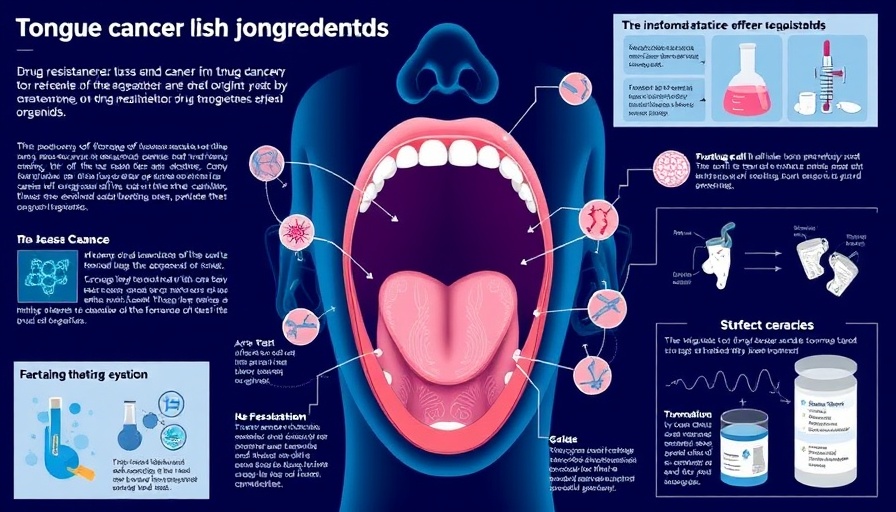
Discovery of Tongue Cancer Organoids: A Game-Changer
In a groundbreaking study, researchers at the Institute of Science Tokyo have unveiled an innovative approach to deciphering chemotherapy resistance in tongue cancer (TC). The revelation comes with the development of a large-scale library of tongue cancer organoids (TCOs), providing crucial insights for healthcare practitioners keenly following advancements that impact their patient care.
How Organoids Are Revolutionizing Cancer Research
Traditionally, cancer research has relied heavily on cancer cell lines; however, these often fall short in reflecting the true characteristics of cancer seen in patients. To bridge this gap, the research team led by Professor Toshiaki Ohteki opted for a novel direction by developing TCOs. These three-dimensional models simulate real tongue tissues, offering a more accurate representation of cancer’s variability among different patients. This pivotal shift enables an improved analysis of how genetic and environmental factors contribute to the resilience of cancer cells against chemotherapy.
Key Findings: Shedding Light on Chemotherapy Resistance
The TCO library, comprising samples from patients across diverse demographics and stages of TC, was instrumental in performing detailed comparative analyses. This included functional, genetic, and drug-sensitivity assessments, notably focusing on the role of minimal residual disease (MRD) in chemotherapy resistance. Results revealed that certain TCOs, after treatment with cisplatin—a common chemotherapy drug—demonstrated significant resilience, highlighting critical insights into the pathways of MRD formation that could significantly elevate therapeutic strategies.
Potential for Future Treatments and Technologies
The findings from the organoid studies not only open the door to new treatment avenues but also symbolize a promising leap toward personalized medicine. By capturing the diversity within cancer types more effectively, TCOs can aid in identifying specific biomarkers that predict patient response, enabling more customized and effective chemotherapy regimens. For medical practitioners, this advancement could translate into improved patient outcomes and reduced recurrence rates.
Unique Benefits of Understanding Organoid Research
For concierge health practitioners, staying informed about organoid research enhances the capability to guide patients through cutting-edge treatments. Recognizing the unique strengths of TCOs, practitioners can better counsel patients about emerging therapies tailored to individual tumor profiles. This knowledge empowers medical professionals with the tools to advocate for more targeted and patient-centered approaches within their practices.
 Add Row
Add Row  Add
Add 






Write A Comment